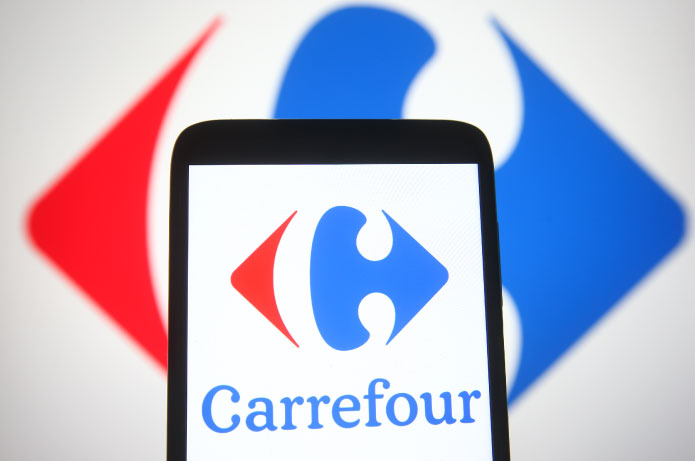Brazilians have undergone significant changes in their lifestyle in recent years, including the "urban exodus"—the migration from major capitals to smaller cities, primarily in pursuit of a higher quality of life. This trend has reshaped the retail market, fueling growing demand for solutions that are **proximity-driven, agile, and accessible**. Everything is designed to align with the preferences and expectations of this new urban demographic.
The hyperlocal retail, as this phenomenon is termed, is built on the premise that both consumers and businesses focus on what's nearby, thinking locally and prioritizing convenience and opportunities, respectively.
Exemplos não faltam. Grandes redes como o Grupo Pão de Açúcar e Carrefour já estão investindo em formatos menores e mais próximos das comunidades, como o Minuto Pão de Açúcar e o Carrefour Express. Já startups como a sueca Lifvs, com lojas autônomas e disponíveis 24 horas, ou a brasileira Ame Go, que automatiza compras com IA e wi-fi, mostram como a conveniência está transformando o varejo.
“O futuro do varejo será cada vez mais descentralizado e conectado. As lojas não precisam ser grandes, mas sim ágeis, convenientes e adaptadas às necessidades locais”, ressalta César Baleco, CEO da IRRAH, grupo de tecnologia especializado em soluções para o setor varejista.
Além das grandes redes que têm investido nos comércios locais, o varejo hiperlocal também está alinhado ao crescimento dos pequenos negócios no Brasil, que representam a maioria das empresas abertas recentemente. Em setembro de 2024, foram registrados 349,5 mil novos pequenos negócios, 96% do total de CNPJ s criados no período, segundo levantamento do Sebrae com dados da Receita Federal. No acumulado do ano, 3,3 milhões de novas empresas foram abertas, sendo aproximadamente 3,2 milhões, compostas por MEIs, micro e pequenas empresas.
Segundo Baleco, essa transformação tende a ficar ainda mais acentuada. Durante a pandemia, 72% dos brasileiros passaram a priorizar pequenos negócios, e 80% afirmaram que continuarão incentivando estabelecimentos locais, segundo a Accenture.
“O futuro do varejo está em ser próximo, ágil e, acima de tudo, conectado”, afirma ele, ressaltando que a tecnologia deixa de ser apenas um facilitador para se tornar um diferencial estratégico para quem busca se destacar nesse novo formato de mercado.
E as formas de utilizar esse diferencial são inúmeras. “Não podemos esquecer que o consumidor está próximo, mas também está conectado, e, apesar de mais propício a comprar do que está próximo, enfrenta uma concorrência muitas vezes esmagadora no universo virtual. Diante disso, é necessário que os comerciantes locais lancem mão das tecnologias existentes hoje para se sobressair”, diz o CEO da IRRAH. Ele cita exemplos emblemáticos, como o caso da varejista sueca Lifvs, por exemplo, que, escolheu a zona rural como destino de suas lojas automatizadas, oferecendo mais opções a comunidades sem acesso a supermercados. A rede abriu 19 em formato de contêiner são transportadas até o local de funcionamento, sendo destravadas via um aplicativo.
Mas, os negócios locais não precisam lançar mão de estratégias tão ousadas para cativar o seu público e vencer a concorrência no mundo tecnológico. Segundo Baleco, existem ferramentas acessíveis hoje no meerado que, por exemplo, automatizam campanhas e atendimentos e, que, com um pouco de criatividade, podem fazer a diferença e garantir uma experiência inesquecível aos clientes.
“Imagine lançar uma campanha digital para atrair pessoas que ainda não conhecem sua loja. Você pode oferecer descontos exclusivos para que essas pessoas venham até o seu estabelecimento, criando uma oportunidade de conquistá-las. Para os clientes que já frequentam o local, a campanha pode incentivá-los a se inscrever em seu canal online para receber novidades, promoções e atualizações, estimulando compras mais frequentes. As possibilidades para aumentar o engajamento e as vendas são inúmeras!”, explica.
Baleco conta que o Grupo IRRAH está presente em mais de 70 países, impulsionando o conceito de varejo hiperlocal. A empresa tem ajudado negócios a automatizar o atendimento e a conectar consumidores a empresas. Entre as soluções inovadoras estão o GTP Maker, que utiliza IA para criar assistentes virtuais; a Dispara Aí, que desenvolve campanhas que impulsionam as vendas; o E-vendi, um e-commerce otimizado para WhatsApp, e o KIGI, um ERP estratégico que transforma a gestão varejista em um ecossistema totalmente integrado.
“Essas tecnologias não só otimizam as operações, como também tornaram o varejo mais dinâmico e competitivo. A integração entre inovação e proximidade é, sem dúvida, a chave para o sucesso neste novo cenário”, conclui César Baleco.


